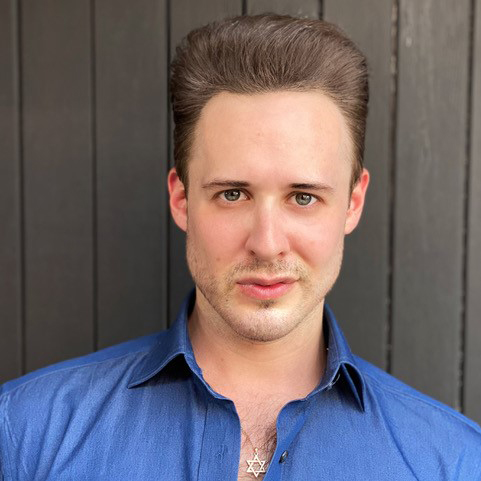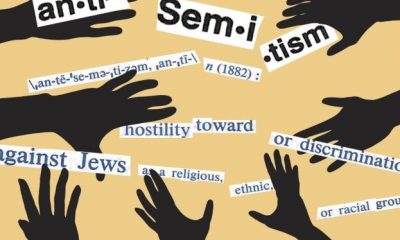
OpEds

Dogs of war – why Jews stand against Israel
To understand why Jews are standing against Israel and with Hamas post-7 October, we need to step back and examine the broader phenomenon of internalised anti-Jewishness.
Before delving into this inquiry, it’s crucial to grasp the origins of these particular anti-Jewish ideas.
First and foremost, for those of us studying antisemitism, it’s essential to recognise the continuum within which all forms of Jew-hate exist. Whether it’s the Spanish Inquisition, the pogroms, or the Holocaust, they all stem from the same core ideas. In the West, the genesis lies in the formation of a distinct Christian identity which used Jews as a point of definition. This ingrained these anti-Jewish ideas in the West, becoming foundational to Western thought. A similar process occurred in the Muslim world, contributing to the depth of Muslim anti-Jewish sentiment today. Essentially, what we witness today are contemporary manifestations of historical hatred.
A unique aspect of Jew-hate is its ability to evolve and adapt to fit the spirit of the times. Anti-Zionism represents a modern iteration of classic Jew-hate. It was pioneered by the Soviet Union to demonise and delegitimise Israel, portraying the Jewish state as the “Jew among nations” or the “collective Jew”. Tropes that had targeted Jewish individuals for centuries were now directed at Israel. Anchoring these libels in the period of decolonisation, Israel was framed as a coloniser, imperialist, and white supremacist state. The Soviet Union also persecuted and culturally repressed its Jewish citizens under the guise of anti-Zionism.
Fast-forward to today, the accusations levelled against Israel are that it is genocidal, purposefully targeting civilians – especially women and children – and withholding aid from Palestinians, leading to starvation. It’s important to differentiate these accusations from legitimate criticism of Israel. No country is immune to criticism, and Jews who engage in fair and balanced critique of Israel aren’t exhibiting internalised anti-Jewishness. The former allegations strike at the very core of Israel’s identity. To those making these claims, Israel is inherently evil, reminiscent of the Soviet Union’s portrayal. This provides the specific context for the global backlash against Jews.
It’s crucial to note that the process through which Jews internalise the surrounding hate isn’t an exclusively Jewish phenomenon. As I articulated in my second book, Reclaiming Our Story, which delves deeply into this phenomenon, internalised hate is a well-documented manifestation of prejudice. In it, I reference Camara Phyllis Jones, a black anti-racism activist, who, in her paper, “Levels of racism: a theoretic framework and a gardener’s tale” defines internalised anti-black racism as one of three major manifestations of prejudice. She describes it as the “acceptance by members of the stigmatised races of negative messages about their own abilities and intrinsic worth. It’s characterised by their not believing in others who look like them, and not believing in themselves. It involves accepting limitations to one’s own full humanity, including one’s spectrum of dreams, one’s right to self-determination.”
Jews are no exception. It’s human to absorb the ideas that surround you in the ether. And due to a multitude of factors, particularly rooted in the Jews’ status as a minority and the ensuing power dynamic, the “broken mirror” of Jewish identity reflects palatable versions of Jewishness back at Jews from the non-Jewish world. This, combined with our yearning for acceptance to escape the hate we’ve endured, often leads many Jews to internalise aspects of that hate.
Internalised anti-Jewishness isn’t solely expressed through Jewish anti-Zionism. While that’s one of the most extreme examples in our context, it can manifest in all of us. In Reclaiming Our Story, I identified three manifestations of this phenomenon: diminishment, denial, and deployment.
Diminishment involves Jews attempting to make their Jewishness smaller in order to gain acceptance from the majority. It can prompt us to alter our names or physical features. It can also deter Jews from standing up for themselves and striving to make themselves acceptable.
Denial occurs when Jews outright reject their Jewishness. Historically, this might have been expressed through conversion to other religions. However, in the era of secularism, it can simply be a refusal to acknowledge any connection to Jewishness.
Deployment refers to the situation where Jews use their Jewishness as a weapon against other Jews. Anti-Zionist Jews have internalised Soviet propaganda about Israel, and employ their Jewishness to validate it, thereby harming the broader Jewish community.
As a result of Soviet and Arab propaganda, anti-Zionism has become a pillar of leftist ideology, which is why individuals and groups such as the LGBTQ+ (lesbian, gay, bisexual, transgender, intersex, queer/questioning, asexual) community are joining the hate campaign against Israel. Jews within those circles have internalised the specific negative and hostile attitudes directed at the Jewish state. Furthermore, these Jewish individuals deeply crave acceptance within their specific community and, whether consciously or subconsciously, feel compelled to reject their Zionism and Jewish Pride. This community has effectively made it impossible for them to align with leftist ideals while also maintaining a sense of pride in their Jewish identity. Tragically, these Jews also lack an understanding of Jewish history and the history of the state of Israel, leaving them unable to defend Israel intellectually against the allegations levelled against it.
This is compounded by the international community’s attitude toward Hamas. Its lies are believed, and bogus death-count figures are accepted without any doubt. This is why, following the genocide Hamas perpetrated against Israel and the ongoing attacks on Israel, we’re witnessing Jews raising their voices against Israel and standing with Hamas. Funded by bad-faith actors such as Qatar on college campuses, these Jews exist in a culture of radicalisation, from their peers and their professors, wherein Israel and Zionists – the vast majority of Jews – are considered to be a representation of evil.
It’s why they are participating in calls for a ceasefire, even though it will perpetuate the cycle of violence endured by both Israelis and Palestinians. It’s why they’re joining encampments at universities worldwide, shouting, “Not in our name!” Ultimately, Jews in leftist spaces accept the falsehoods they’re told and exist within a cultural milieu that restricts their expression of Jewishness to a narrow lens, one that inherently contradicts Jewish history and experience.
In spite of the harm they may cause to our community, these individuals are also victims of Jew-hate. This doesn’t absolve them of responsibility for their actions, but it acknowledges their inability to shield themselves from the onslaught of hate directed at Jews and Israel. As Theodor Lessing, the author of the seminal work Jewish Self-Hate (1929), aptly wrote, “In order to change humans into dogs, all that’s needed is to shout at them long enough, ‘You dog!’”
- Ben M Freeman is the founder of the modern Jewish pride movement, a Jewish leader, a Jewish thinker, a Jewish educator, and author of Jewish Pride: Rebuilding a People and Reclaiming our Story: The Pursuit of Jewish Pride. His work focuses on Jewish identity and historical and contemporary Jew-hatred.










